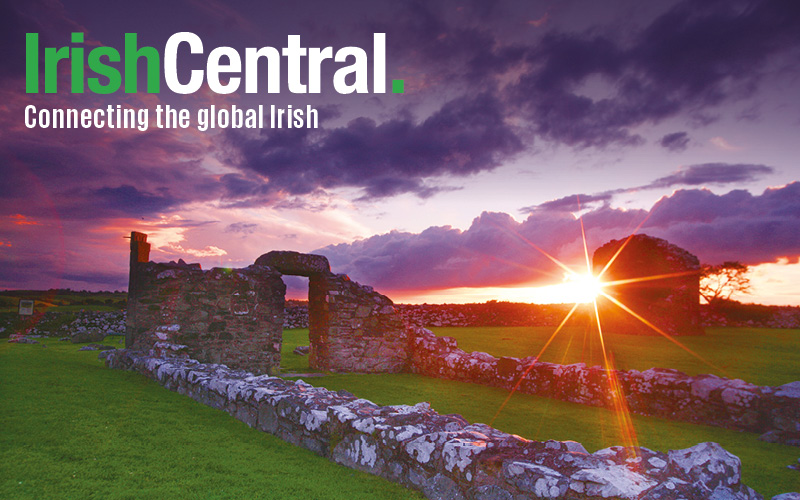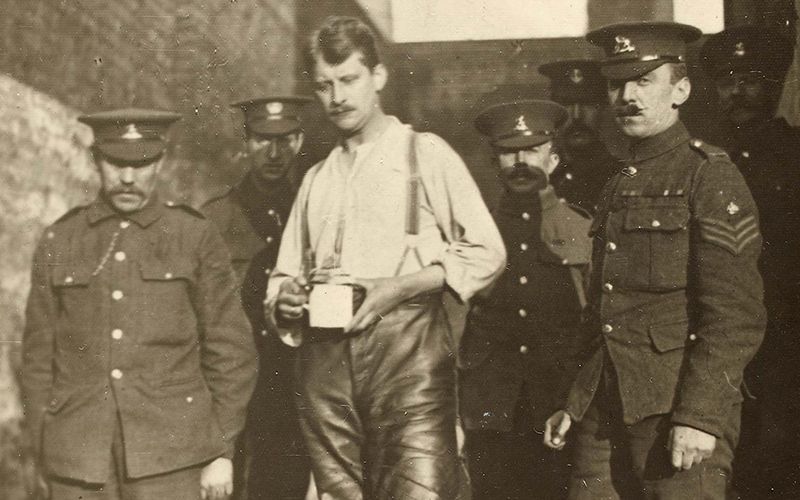| An Irish cottage in ruins |
Nothing can be harder to see clearly than the things you look at every day, all the familiar things the surround you. It's because we tend to filter them out in the middle of our busy day.
Places, things, even people can begin to fade into the wider landscape. We decide that they're dependable and we can stop really seeing them at all.
It's human nature to do this. It happens everywhere people live.
But not seeing what's in front of you comes with a price. You can become comfortable or accepting of circumstances that perhaps you could have changed.
You can settle into patters of behavior that can hinder rather than help your progress. You're on autopilot when perhaps you could have charted a better course.
Strangers can often see what the locals overlook.
One of the first things that strikes new visitors to Ireland is the remarkable number of pubs there are on almost every city street or main village street. To visitors arriving for the first time and seeing the place with fresh eyes, it can look like all the Irish do is drink.
Pubs can outnumber shops, grocery stores and local banks by five to one, often by more. We don't see this ourselves because we have long ago stopped seeing it. It's such an over familiar part of the landscape that it goes unnoticed.
Even alcohol itself has become such a part of the Irish social compact that we tend not to seriously discuss it, or what it is, or what it can do. We tend to focus on its social uses and forget about its psychological ones. We think of its benefits, but we forget to examine why we sought those benefits out.
Alcohol, in moderation, can be an anti-depressant. If you think of alcohol as as an anti-depressant, and if you think of the pub goer as a patient, you can start to see Ireland in an interesting new light. You can start to see yourself in an interesting new light.
It can make some people uncomfortable to do that of course, but there can be value in stepping outside of your comfort zone sometimes. You can start to see all the things that you've missed for years.
So one night why not do something different? Why not step outside of the pub and take a short walk along any Irish town street in the nation?
Pretty soon you'll probably pass by an abandoned stone cottage with the roof caved in, then you'll pass an old ruined castle or an abandoned workhouse, or maybe one of the grim five story mills that are homes to blackbirds now.
Certainly you'll pass by squat Famine era cottages with low doors and tiny stone windows. You'll probably walk past a crow-filled shell of old stone church with its eaves falling in too.
What are these things? They're keepsakes of collapse and failure. They are the violent legacy of each invading horde.
They're the unfathomable price of centuries of colonialism. They're our broken history. They're open scars on the landscape that the living overlook.
You can be a colonial boy in your own country it turns out. Our ancestors knew all about it. They were actually charged by outsiders for the privilege of living in their own country.
It's hard to stomach the mess that our modern era bankers and property speculators and their government cohorts have just made of Ireland, but can you imagine the frustration of being charged by foreigners just to breathe your own air?
So if everywhere you look you see a history of collapse and failure what's left?
What's left, for generations now, has been anti-depressants and the craic. You turn inward and you medicate yourself with your fellow inmates.
You dull your own pain with something that feels like a better life. You try to stop looking at all the things that upset you.
Because the ones who could see how much was lost were often maddened by it, becoming radicals and militants, with usually disastrous results. The less excitable ones wrote about it in poetry and prose but largely went unheeded. It seems we need time, lots of time, to see what's in front of our faces.
I suspect that time has arrived. We live in a moment in history where the poisonous legacy of international colonialism is becoming clear to us like never before.
And it's obvious to me we still haven't climbed out of it's shadow.
Not by a long shot.




Comments